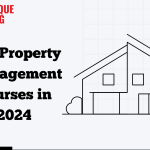Property management is crucial in the world of real estate. Effective property management will ensure that all tenants' needs are met, that the building remains fully compliant with legal regulations, and that finances are accurately managed.
Property management should be conducted with the tenants' needs in mind. Professionals should regularly investigate the physical buildings to guarantee maximum health and safety and organise regular facility maintenance and management. A building must comply with national property laws to be legally habitable and usable.
Furthermore, property management strongly focuses on the tenants and builds a positive relationship with them. Building trust between management and tenants will better guarantee that they remain compliant with their agreements and overall property rules. As with the nature of humans, conflict and tension are bound to arise, and property managers and professionals must be equipped to impartially deal with any conflict and ensure tenants feel safe and comfortable within the property.
Upon completion of this course, participants will be able to:
- Understand the vitality of effective property management.
- Identify a property manager's and other property management personnel's skills, competencies, roles and responsibilities.
- Assess internal and external factors that may influence a property and the ease of its management.
- Analyse tenant personalities and behaviours and explore ideal methods for approaching issues.
- Ensure full and open communication with all tenants regarding their issues or property rules.
- Examine conflicts between tenants and resolve them impartially while minimising anger and fallout.
- Comprehend all relevant property and housing laws and regulations.
This course is designed for anyone within an organisation who is responsible for managing different types of properties. It would be most beneficial for:
- Property Managers
- Property Directors
- Landlords
- Real Estate Agents
- Property Owners
- Facilities Managers
- Compliance officers
This course uses a variety of adult learning styles to aid full understanding and comprehension. Participants will review real-world case studies of established property management organisations to highlight key factors that lead to management success and areas for potential improvement.
Alongside these case studies, the participants will partake in various learning methods, including presentations, group discussions, practical demonstrations, and role-playing activities. This combination of learning methods will ensure the participants can develop a full and comprehensive understanding of the taught content and related skills.
Day 5 of each course is reserved for a Q&A session, which may occur off-site. For 10-day courses, this also applies to day 10
Section 1: Introduction to Property Management
- Defining what property management is, its necessity and importance within the real estate industry.
- Exploring the skills, roles, and responsibilities an effective property manager must possess.
- Identifying different types of properties and the differences within their management – residential, commercial, and industrial.
- The basics of property law and management ethics and morals.
Section 2: Building Maintenance and Security
- Conducting regular assessments of building features to analyse the rate of degeneration and frequency of issues.
- Utilising assessment data to create an accurate schedule of regular maintenance tasks.
- Crisis management and establishing contingency plans in case of unforeseen circumstances.
- Implement physical security measures to ensure tenant safety – CCTV, security alarms and code-accessed doors.
Section 3: Tenant Management and Conflict Resolution
- Selecting the right tenants – conducting background checks, credit checks and other necessary screenings.
- Building a positive relationship with tenants based on respect and trust.
- Balancing a friendly relationship with professional responsibilities.
- Ensuring clear, concise, and open communication with all tenants.
- Managing conflict between tenants and working towards an amicable resolution impartial.
Section 4: Legal Factors of Property Management
- Enforcing tenancy agreements and identifying when eviction is necessary and can be conducted lawfully.
- Investigating local and national laws surrounding property management and tenancy regulations.
- Comprehending all aspects of leases, agreements, and contracts.
- Reviewing legal obligations to tenants and ensuring these are all met.
- Managing legal disputes and proceeding with litigation.
Section 5: Finance Management of Properties
- The importance of closely managing property budgets.
- Reviewing property financial statements to explore income, costs, and maximising profits.
- Balancing the management of insurance, taxes, and mortgages.
- Collecting rent, managing rent increases in alignment with market trends and dealing with late payments.
Upon successful completion of this training course, delegates will be awarded a Holistique Training Certificate of Completion. For those who attend and complete the online training course, a Holistique Training e-Certificate will be provided.
Holistique Training Certificates are accredited by the British Assessment Council (BAC) and The CPD Certification Service (CPD), and are certified under ISO 9001, ISO 21001, and ISO 29993 standards.
CPD credits for this course are granted by our Certificates and will be reflected on the Holistique Training Certificate of Completion. In accordance with the standards of The CPD Certification Service, one CPD credit is awarded per hour of course attendance. A maximum of 50 CPD credits can be claimed for any single course we currently offer.
Tags
Property Management,- Course Code IND21-106
- Course Format Classroom, Online,
- Duration 5 days









